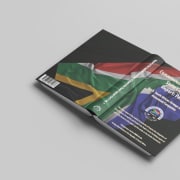|
Getting your Trinity Audio player ready...
|
Auditor-General (AG) Tsakani Maluleke, in a statement issued on Wednesday 5 April 2023, has welcomed Finance Minister Enoch Godongwana’s decision to withdraw the controversial exemption of Eskom from section 55(2)(b)(i) of the Public Finance Management Act and Treasury Regulation 28.2.1 for three years.
This exemption meant that the struggling power utility would not have had to disclose, in its annual financial statements, information regarding irregular, fruitless, and wasteful (IFW) expenditure arising from sources other than corruption. The original reason, said the National Treasury (NT) in a statement, was to allow Eskom to have better financial statements, and also create an environment which includes transparency on corruption and irregular expenditure, and other related issues.
Eskom reported R67.1-billion of IFW expenses in the 2022 financial year. The Auditor-General of South Africa (Agsa) defines IFW expenditure as “expenditure that was made in vain and could have been avoided had reasonable care been taken”.
Thus the exemption, gazetted on 31 March, drew widespread public criticism, as well as protests from unions and political parties. The Congress of South African Trade Unions said the original decision was “ill-conceived”.
“We have decided to withdraw the gazette for now. It was never the intention of the exemption to hide anything in this regard,” said Godongwana, making the announcement on Wednesday during an appearance before a joint meeting of the Standing Committee on Finance, Standing Committee on Public Accounts, Standing Committee on the Auditor-General, and Portfolio Committee on Public Enterprises.
“We had intensive discussions with the auditor-general and in that discussion there were some contributions from the AG that need to be part of the framing of the gazette,” he said.
The notice to withdraw the exemption is to be gazetted on 6 April 2023. This will allow for “more detailed discussions with the AG and Eskom’s auditors so that the framing is proper and the checks and balances are tightened.”
The AG agreed that more consultation must take place with the NT, Eskom’s appointed auditors Deloitte, and the Agsa, to address any technical issues that may have arisen.
“The granting of exemptions from the Public Finance Management Act is the prerogative of the Minister of Finance, as empowered by section 92 of the Act,” she added.
The exemption was partial, Gondongwana clarified to Parliament, and would still have required Eskom to disclose all irregular and fruitless expenditure in its annual report. However, the report and the financial statements would have been audited separately, so that the latter would be more aligned with how listed companies generally report.
Finance standing committee chairperson Joe Maswanganyi said the committees will continue to play oversight to make sure that all entities, including Eskom, have risk management strategies, turnaround plans, and audit action plans, and that they stick to the National Government Accountability Ecosystem as designed by the Auditor-General.
“We acknowledge the decision taken by the Minister to withdraw the exemption and if ever there will be any development in the future, we will deal with them when we come to that point.”








